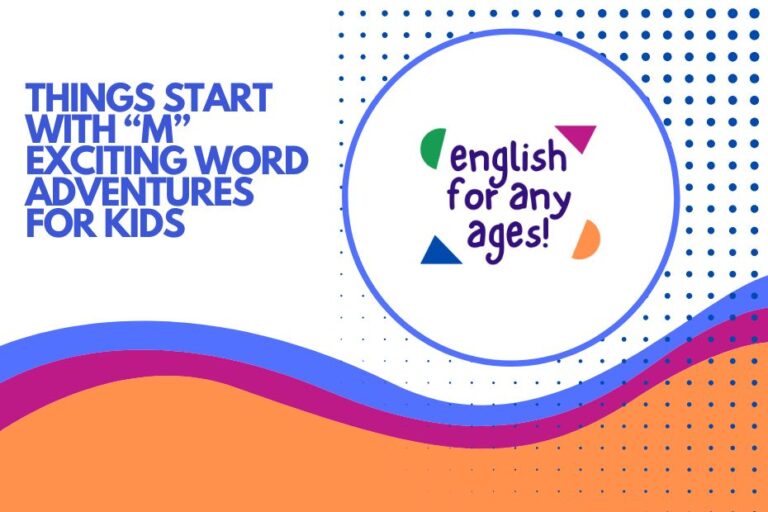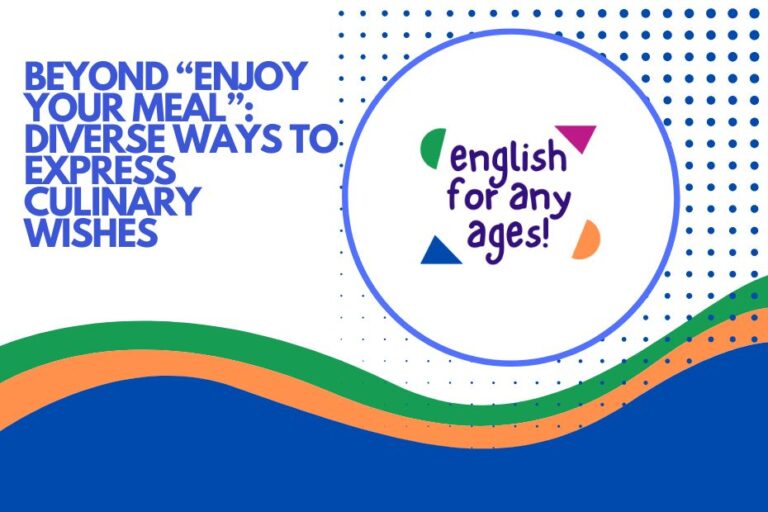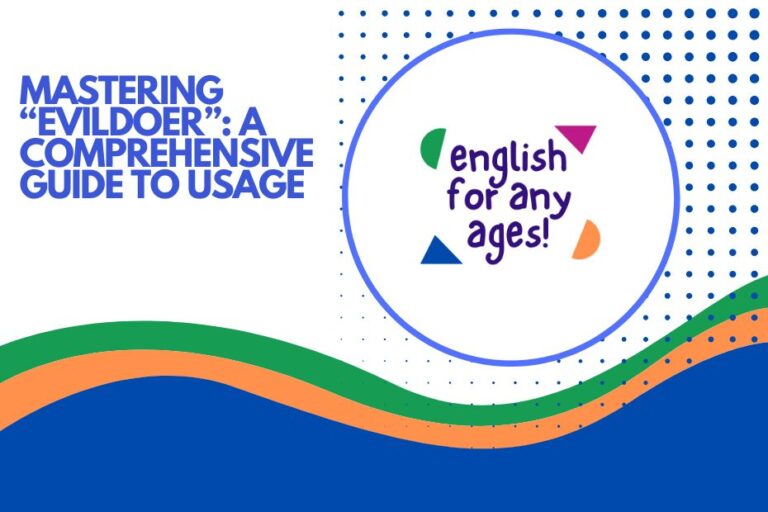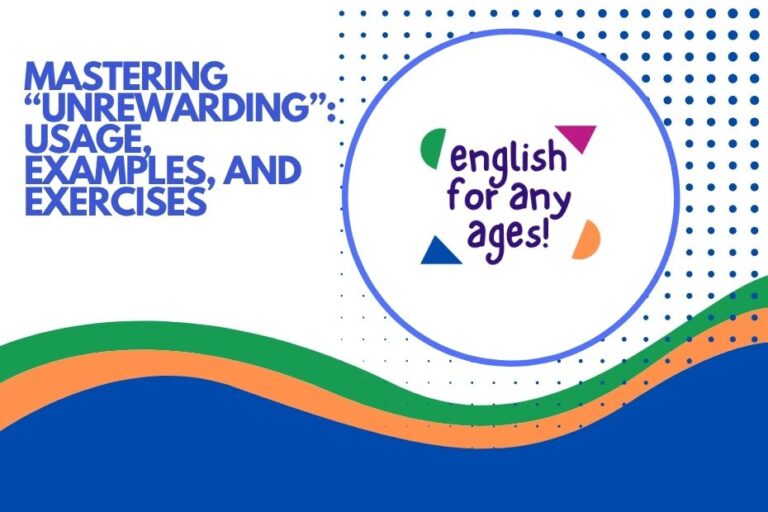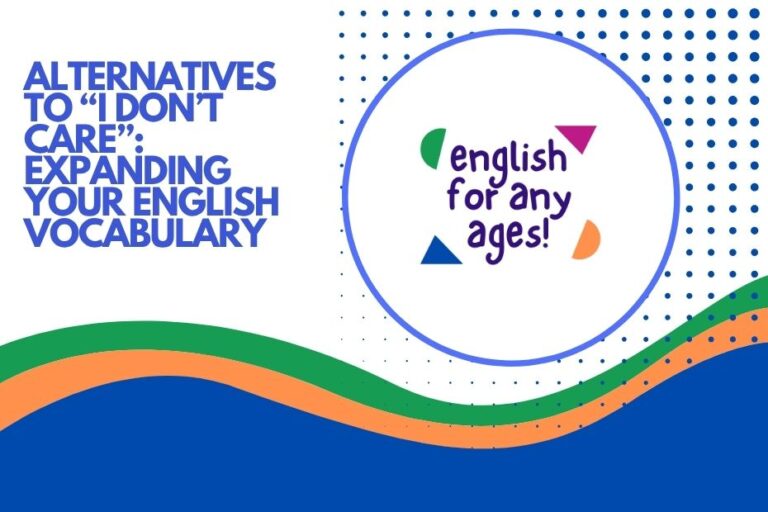Beyond “Welcome Back”: Diverse Ways to Greet Someone’s Return
Knowing how to welcome someone back effectively is more than just good manners; it’s a crucial aspect of building and maintaining relationships. While “Welcome back” is perfectly acceptable, its overuse can make interactions sound repetitive and impersonal.
This article explores a rich variety of alternative phrases and expressions, each carrying its own nuance and suitable for different contexts. Understanding these options enhances your communication skills, allowing you to express genuine pleasure and make returning individuals feel truly valued.
Whether you’re a student learning English, a professional aiming for polished communication, or simply someone looking to enrich their vocabulary, this guide offers valuable insights and practical examples to master the art of welcoming someone back.
Table of Contents
- Introduction
- Definition: The Art of Welcoming Someone Back
- Structural Breakdown: Elements of a Heartfelt Welcome
- Types and Categories of Welcome Back Phrases
- Examples of Welcome Back Phrases
- Usage Rules: Ensuring Proper Application
- Common Mistakes to Avoid
- Practice Exercises
- Advanced Topics: Nuances and Subtleties
- FAQ: Frequently Asked Questions
- Conclusion
Definition: The Art of Welcoming Someone Back
Welcoming someone back involves expressing pleasure or acknowledgment upon their return to a place, situation, or relationship after an absence. It’s a form of social greeting that aims to make the returning individual feel valued, comfortable, and reintegrated.
The act of welcoming back goes beyond a simple greeting; it’s about fostering a sense of belonging and reaffirming the connection between individuals or within a group. It demonstrates consideration and acknowledges the person’s absence, signaling that they were missed or their presence is appreciated.
The function of a welcome back phrase can be broadly categorized into: Emotional expression (conveying happiness or relief), Social bonding (strengthening relationships), and Reintegration (easing the transition back into a familiar environment). The specific phrase used depends heavily on the context, the relationship between the individuals, and the reason for the absence. For instance, a formal workplace setting requires different language than a casual gathering of friends. Similarly, welcoming someone back from a long illness necessitates a different approach than welcoming them back from a vacation.
Context is key. Consider the relationship with the person you are welcoming, the length and reason for their absence, and the overall environment.
A carefully chosen welcome back phrase can significantly impact the returning person’s experience, making them feel genuinely appreciated and easing their transition back.
Structural Breakdown: Elements of a Heartfelt Welcome
A well-structured welcome back phrase typically comprises several key elements that contribute to its effectiveness. These elements can be combined and modified to suit specific situations and relationships.
- Greeting or Acknowledgment: This is the basic component that signals recognition. It can be as simple as “Hi,” “Hello,” or the person’s name.
- Expression of Pleasure or Relief: This conveys your positive feelings about their return. Examples include “It’s great to have you back,” “We’re so glad you’re back,” or “I’m happy to see you.”
- Acknowledgment of Absence (Optional): This subtly acknowledges that the person was away and can be a way to show that their absence was noticed. Examples include “We missed you,” “It wasn’t the same without you,” or “We’re glad you’re back with us.”
- Inquiry about their Experience (Optional): This shows interest in what they were doing during their absence. Examples include “How was your trip?”, “How did everything go?”, or “Tell me all about it.”
- Offer of Assistance (Optional): This demonstrates your willingness to help them reintegrate. Examples include “Let me know if you need anything,” “Can I help you catch up?”, or “We’re here to help you get settled back in.”
- Positive Reinforcement (Optional): This reinforces the value of their return and can boost their morale. Examples include “Your expertise was missed,” “We’re excited to have you back on the team,” or “We’ve been looking forward to your return.”
Consider the following example, breaking down each element: “Hi Sarah, it’s so great to have you back! We missed your insights in the meetings.
How was your vacation? Let me know if you need any help catching up on projects.” In this example, “Hi Sarah” is the greeting, “it’s so great to have you back!” is the expression of pleasure, “We missed your insights in the meetings” acknowledges the absence, “How was your vacation?” is the inquiry about their experience, and “Let me know if you need any help catching up on projects” is the offer of assistance.
By understanding these structural elements, you can craft personalized and meaningful welcome back phrases that resonate with the returning individual and strengthen your relationship with them.
Types and Categories of Welcome Back Phrases
Welcome back phrases can be categorized based on formality, tone, and context. Understanding these categories allows you to select the most appropriate phrase for each situation.
Formal Welcomes
Formal welcome back phrases are typically used in professional settings, when addressing superiors, or when interacting with individuals you don’t know well. They emphasize respect and politeness.
Examples include: “Welcome back, Mr./Ms. [Last Name],” “It’s a pleasure to have you back,” “We are pleased to welcome you back to the team,” “Your return is greatly appreciated,” and “We trust you had a productive time away.” These phrases often avoid contractions and use more sophisticated vocabulary.
Informal Welcomes
Informal welcome back phrases are suitable for friends, family, and close colleagues. They are characterized by a relaxed and friendly tone.
Examples include: “Hey, welcome back!”, “Good to see you again!”, “It’s great to have you back!”, “Missed you!”, and “So glad you’re back!”. These phrases often use contractions and slang, and they may include personal touches like nicknames or inside jokes.
Enthusiastic Welcomes
Enthusiastic welcome back phrases express a high level of excitement and joy at the person’s return. They are appropriate for situations where you are genuinely thrilled to see the individual again.
Examples include: “Welcome back! We’re so excited to have you!”, “Yay, you’re back!”, “We’ve been waiting for you!”, “Can’t believe you’re back!
Awesome!”, and “Welcome back! Let’s celebrate!”.
These phrases often use exclamation points and emphasize positive emotions.
Sincere Welcomes
Sincere welcome back phrases convey genuine care and concern for the person’s well-being. They are particularly appropriate when welcoming someone back after a difficult time, such as an illness or bereavement.
Examples include: “Welcome back, we’re thinking of you,” “It’s good to see you, we’re here for you,” “We’re so glad you’re back and doing well,” “We’ve missed you and hope you’re feeling better,” and “Welcome back, take your time getting settled in.” These phrases emphasize empathy and support.
Contextual Welcomes
Contextual welcome back phrases are tailored to the specific situation or reason for the person’s absence. They demonstrate that you have considered their circumstances and are offering a relevant welcome.
Examples include: “Welcome back from your trip! I hope you had a wonderful time,” “Welcome back to work!
We’re glad you’re feeling better,” “Welcome back to school! Ready for the new semester?” and “Welcome back to the neighborhood!
We’re happy to have you back among us.” These phrases show that you are aware of their situation and are offering a personalized welcome.
Examples of Welcome Back Phrases
The following tables provide extensive examples of welcome back phrases categorized by context. Each table includes a wide range of options, from formal to informal, to suit various situations.
General Welcome Back Phrases
These phrases are suitable for a wide range of situations and can be adapted to fit the specific context. They are a good starting point when you’re unsure which phrase to use.
The table below lists a variety of general welcome back phrases, ranging from simple and direct to more expressive and heartfelt. These can be used in many situations.
| Phrase | Context/Notes |
|---|---|
| Welcome back! | Simple and universally applicable. |
| Good to see you again! | Friendly and casual. |
| It’s great to have you back! | Expresses genuine pleasure. |
| We’re glad to have you back. | Formal and polite. |
| So good to see you! | Enthusiastic and friendly. |
| Welcome back, [Name]! | Personalized and welcoming. |
| It’s a pleasure to see you again. | Formal and respectful. |
| We’ve missed you! | Expresses fondness and absence. |
| Happy to have you back! | Simple and cheerful. |
| Welcome back to the [place/group]! | Specific and inclusive. |
| It’s been too long! Welcome back! | Expresses that it’s been a while since you saw them. |
| Glad you’re back with us. | Warm and inclusive. |
| Welcome back, we’ve been expecting you! | Playful and anticipatory. |
| It’s wonderful to have you back. | Sincere and heartfelt. |
| We’re delighted to see you again. | Formal and gracious. |
| Welcome back! How was everything? | Shows interest in their experience. |
| Good to have you back in the fold. | Informal and welcoming to a group. |
| Welcome back, safe and sound! | Expresses relief at their safe return. |
| It’s a joy to see you back! | Expresses strong positive emotion. |
| We’re so happy to have you back with us. | Emphasizes their importance to the group. |
| Welcome back! You were missed. | Acknowledge their absence and value. |
| It’s a relief to see you back. | Suitable after a worrying absence. |
| Welcome back, and we mean it! | Emphasizes sincerity. |
Workplace Welcome Back Phrases
These phrases are tailored for professional settings and consider the workplace environment. They often focus on reintegration and acknowledging their contributions.
The table below provides examples of welcome back phrases suitable for the workplace, considering different roles and situations. These phrases aim to ease the transition back into work.
| Phrase | Context/Notes |
|---|---|
| Welcome back to the team! | General and inclusive. |
| It’s great to have you back in the office. | Specific to the workplace. |
| We’re glad you’re back, [Name]. | Personalized and professional. |
| Welcome back! Ready to get back to work? | Lighthearted and motivating. |
| Your expertise was missed! Welcome back. | Acknowledges their professional value. |
| Welcome back! Let us know if you need anything. | Offers support and assistance. |
| It’s good to see you back, we’ve got a lot to catch you up on. | Acknowledges that they need to get back up to speed. |
| Welcome back! How was your time off? | Shows interest in their experience. |
| We’re happy to have you back on board. | Formal and welcoming. |
| Welcome back! The team wasn’t the same without you. | Expresses their importance to the team. |
| It’s a pleasure to have you back in the department. | Formal and specific. |
| Welcome back, we appreciate your return. | Expresses gratitude for their presence. |
| Good to have you back, we’ve been holding down the fort. | Informal and appreciative. |
| Welcome back! We’re excited to have you back on this project. | Enthusiastic and task-oriented. |
| It’s great to see you back in your usual spot. | Acknowledges their place in the office. |
| Welcome back! We’re looking forward to your contributions. | Expresses anticipation for their work. |
| Glad to have you back, let’s schedule a catch-up meeting. | Proactive and helpful. |
| Welcome back! We’ve missed your insights during meetings. | Highlights their value in discussions. |
| It’s wonderful to have you back, we’re ready to support you. | Supportive and encouraging. |
| Welcome back, we’re excited to collaborate with you again. | Emphasizes teamwork. |
| Good to see you back, the team has missed your positive energy. | Acknowledges their impact on team morale. |
| Welcome back to work! Hope you had a restful break. | Shows concern for their well-being. |
| We’re thrilled to have you back, let’s celebrate your return! | Enthusiastic and celebratory. |
Personal Welcome Back Phrases
These phrases are suitable for friends, family, and loved ones. They emphasize personal connection and affection.
The table below contains personal welcome back phrases that express affection and care. These are perfect for friends and family who have been away.
| Phrase | Context/Notes |
|---|---|
| Welcome home! | Warm and comforting. |
| I’m so glad you’re back! | Expresses genuine happiness. |
| Missed you tons! Welcome back. | Informal and affectionate. |
| It’s not been the same without you! Welcome back. | Expresses a strong sense of absence. |
| Welcome back, sweetheart! | Affectionate and personal. |
| I’ve been waiting for you to come back! | Expresses anticipation. |
| Welcome back, my friend! | Friendly and heartfelt. |
| So happy to have you back in my life! | Expresses the importance of their presence. |
| Welcome back, I’ve been thinking of you! | Shows care and concern. |
| It’s like you never left! Welcome back. | Reassuring and familiar. |
| Welcome back, let’s catch up soon! | Proposes spending time together. |
| I’m overjoyed to have you back! | Expresses strong positive emotion. |
| Welcome back, I’ve got so much to tell you! | Excited to share experiences. |
| It’s a relief to have you back safe. | Expresses relief at their well-being. |
| Welcome back, you’re home now! | Comforting and reassuring. |
| I can’t believe you’re back! Wonderful! | Expresses disbelief and joy. |
| Welcome back, the house felt empty without you! | Highlights their importance to the home. |
| So glad to have you back, let’s celebrate! | Proposes celebration. |
| Welcome back! We’ve been counting down the days. | Expresses excitement and anticipation. |
| Good to have you back, you were truly missed. | Sincere and heartfelt. |
| Welcome back, let’s make some new memories! | Suggests future shared experiences. |
| I’m so happy to see you back, my dear! | Affectionate and caring. |
| Welcome back, everything’s better now that you’re here! | Highlights their positive impact. |
Travel-Related Welcome Back Phrases
These phrases are specific to welcoming someone back from a trip or vacation. They often inquire about their experience and express interest in their travels.
This table contains welcome back phrases tailored for those returning from a trip, focusing on their experiences and well-being.
| Phrase | Context/Notes |
|---|---|
| Welcome back from your trip! | General and travel-specific. |
| How was your vacation? Welcome back! | Inquires about their experience. |
| Hope you had a wonderful time! Welcome back. | Expresses good wishes for their trip. |
| Welcome back! Tell me all about your trip. | Shows interest and encourages sharing. |
| Glad you had a safe trip! Welcome back. | Expresses relief at their safe return. |
| Welcome back! Did you have a good time? | Directly asks about their enjoyment. |
| Hope you enjoyed your travels! Welcome back. | Expresses general well wishes for their trip. |
| Welcome back! What was your favorite part of the trip? | Encourages specific details. |
| So glad you’re back from your adventure! | Acknowledges their journey. |
| Welcome back! Did you bring me anything? (playful) | Lighthearted and humorous. |
| Hope you got some rest on your trip! Welcome back. | Shows concern for their well-being. |
| Welcome back! Ready to be home? | Asks about their feelings about returning. |
| Glad to have you back from your travels! | General and welcoming. |
| Welcome back! What did you learn on your trip? | Encourages reflection. |
| Hope you made some great memories on your trip! | Expresses good wishes for lasting experiences. |
| Welcome back! Did you try any new foods? | Asks about specific experiences. |
| So glad you’re back from exploring! | Acknowledges their adventurous spirit. |
| Welcome back! Ready to share your stories? | Anticipates hearing about their travels. |
| Hope you saw amazing sights! Welcome back. | Expresses interest in their visual experiences. |
| Welcome back! Did you meet interesting people? | Asks about social interactions. |
| Glad you’re back, safe and sound from your travels! | Expresses relief and welcome. |
| Welcome back! Did you take lots of pictures? | Encourages visual sharing. |
| Hope you had an unforgettable trip! Welcome back. | Expresses wishes for a memorable experience. |
Welcomes After an Absence
These phrases are suitable for welcoming someone back after an absence due to illness, personal reasons, or other circumstances. They often express concern and offer support.
The following table provides welcome back phrases appropriate for situations where someone has been absent due to illness or personal reasons, showing support and concern.
| Phrase | Context/Notes |
|---|---|
| Welcome back! We’re so glad you’re feeling better. | Specifically for illness. |
| It’s good to see you back on your feet! Welcome back. | Expresses relief at their recovery. |
| Welcome back! We’ve been thinking of you. | Shows care and concern. |
| Glad you’re back, and hope you’re doing well. | Expresses good wishes for their well-being. |
| Welcome back! Take it easy getting back into things. | Encourages a gentle transition. |
| It’s wonderful to have you back, we’re here to support you. | Offers assistance and support. |
| Welcome back! We’re glad you’re back with us. | General and welcoming. |
| Hope you had a chance to rest and recover. Welcome back! | Shows concern for their rest. |
| Welcome back! Don’t hesitate to ask for help with anything. | Offers practical assistance. |
| It’s a relief to see you back, we missed you. | Expresses relief and absence. |
| Welcome back! We’re happy to have you back among us. | Reintegrates them into the group. |
| Glad you’re back, we hope everything is okay. | Expresses concern for their situation. |
| Welcome back! We’ve been keeping things running for you. | Shows support and continuity. |
| It’s great to see you back, take your time getting settled. | Encourages a relaxed return. |
| Welcome back! Let us know if there’s anything we can do. | Offers general assistance. |
| Hope you’re feeling up to being back! Welcome back. | Shows concern for their energy levels. |
| Welcome back, we’ve all been sending good thoughts your way. | Expresses collective support. |
| It’s so good to have you back, we’re here for you if you need anything. | Offers comprehensive support. |
| Welcome back! We’ve missed your presence and positive attitude. | Acknowledges their positive impact. |
| Glad you’re back, we’re all excited to have you back in action. | Expresses enthusiasm for their return. |
| Welcome back, we’ve been looking forward to your return. | Expresses anticipation. |
| It’s wonderful to see you back, we’re here to help in any way we can. | Offers support in any capacity. |
| Welcome back! Your well-being is our priority. | Emphasizes their health and happiness. |
Usage Rules: Ensuring Proper Application
Using welcome back phrases effectively requires adhering to certain usage rules to ensure appropriateness and avoid misunderstandings. These rules relate to formality, tone, and context.
- Consider the relationship: Use formal language with superiors or new acquaintances, and informal language with friends and family.
- Match the tone to the situation: Use enthusiastic language for joyful reunions, and sincere language for difficult situations.
- Be mindful of the context: Tailor your welcome back phrase to the specific reason for the absence.
- Avoid insensitive remarks: Do not make light of serious situations or pry into personal matters.
- Be genuine: Your welcome back phrase should reflect your true feelings and intentions.
- Listen to the person’s response: Pay attention to their reaction and adjust your communication accordingly.
- Offer assistance appropriately: Only offer help if you are genuinely willing and able to provide it.
- Respect boundaries: Avoid being overly intrusive or demanding.
By following these usage rules, you can ensure that your welcome back phrases are well-received and contribute to positive interactions.
Common Mistakes to Avoid
Several common mistakes can undermine the effectiveness of welcome back phrases. Being aware of these mistakes can help you avoid them.
The following examples illustrate common mistakes made when welcoming someone back, along with corrected versions.
| Incorrect | Correct | Explanation |
|---|---|---|
| “Welcome back! So, what did I miss?” | “Welcome back! How was everything?” | Focuses on your own needs instead of showing interest in their experience. |
| “Welcome back! It’s about time you got back.” | “Welcome back! It’s great to see you.” | Sounds impatient and unwelcoming. |
| “Welcome back! So, what’s the gossip?” | “Welcome back! How have you been?” | Too informal and potentially intrusive. |
| “Welcome back! Everything fell apart while you were gone.” | “Welcome back! We managed while you were away, but we’re glad to have you back.” | Creates unnecessary stress and negativity. |
| “Welcome back! I hope you’re ready to work hard.” | “Welcome back! We’re glad to have you back on the team.” | Sounds demanding and lacks empathy. |
| “Welcome back! You look different.” | “Welcome back! It’s great to see you again.” | Can be interpreted negatively and focuses on appearance. |
| “Welcome back! We barely noticed you were gone.” | “Welcome back! We missed you while you were away.” | Undermines their importance and presence. |
| “Welcome back! I’m surprised you came back.” | “Welcome back! We’re happy you decided to return.” | Sounds judgmental and unwelcoming. |
| “Welcome back! Did you at least have fun?” | “Welcome back! Hope you had a pleasant time.” | Too casual and potentially insensitive. |
| “Welcome back! Are you sure you’re ready to be back?” | “Welcome back! We’re here to support you as you get back into things.” | Expresses doubt and lacks support. |
By avoiding these common mistakes, you can ensure that your welcome back phrases are well-received and contribute to positive interactions.
Practice Exercises
The following exercises will help you practice using different welcome back phrases in various contexts.
Complete the following sentences with an appropriate welcome back phrase, considering the context provided. This exercise will help you apply what you’ve learned.
| Question | Answer |
|---|---|
| Your friend returns from a year-long trip around the world. How do you greet them? | “Welcome back! Tell me everything about your adventures!” |
| Your colleague returns to work after recovering from a serious illness. What do you say? | “Welcome back! We’re so glad you’re feeling better and back with us.” |
| Your family member returns home after being away at college for a semester. How do you welcome them? | “Welcome home! We’ve missed you so much.” |
| Your boss returns from a business trip. What’s a professional way to greet them? | “Welcome back, Mr./Ms. [Last Name]. We hope your trip was productive.” |
| A neighbor returns to the neighborhood after living abroad for several years. How do you greet them? | “Welcome back to the neighborhood! It’s great to have you back.” |
| Your teammate returns after taking a sabbatical. What do you say? | “Welcome back to the team! We’re excited to have you back on board.” |
| Your significant other returns from a weekend getaway. How do you greet them? | “Welcome back, sweetheart! I’m so glad you’re home.” |
| Your classmate returns to school after missing several weeks due to a family emergency. What do you say? | “Welcome back! We’re glad you’re back and hope everything is okay.” |
| A friend returns to your gaming group after being absent for a few months. How do you welcome them? | “Welcome back! It’s great to have you back in the game.” |
| Your mentor returns from a conference. What do you say? | “Welcome back! We’re looking forward to hearing about your insights.” |
Advanced Topics: Nuances and Subtleties
Beyond basic welcome back phrases, there are more advanced nuances and subtleties to consider. These include cultural considerations, non-verbal communication, and personalized expressions.
Cultural Considerations: Different cultures have different customs and expectations regarding greetings. Researching cultural norms can help you avoid unintentional offense. For example, some cultures may prefer more formal greetings, while others may be more relaxed and informal.
Non-Verbal Communication: Your body language, facial expressions, and tone of voice can significantly impact the effectiveness of your welcome back phrase. Maintain eye contact, smile genuinely, and use a warm and welcoming tone of voice.
Personalized Expressions: The most effective welcome back phrases are often personalized to the individual and the situation. Consider their interests, personality, and the reason for their absence when crafting your message.
By mastering these advanced topics, you can elevate your welcome back phrases from simple greetings to meaningful expressions of connection and care.
FAQ: Frequently Asked Questions
This section addresses common questions about welcome back phrases and their usage.
- Is it always necessary to say “welcome back”?
No, it’s not always necessary. The appropriateness of a welcome back phrase depends on the context and the relationship. In some situations, a simple “hello” or a friendly nod may suffice. However, in most cases, acknowledging the person’s return with a welcome back phrase is a polite and considerate gesture.
- What if I don’t know the person well?
If you don’t know the person well, it’s


